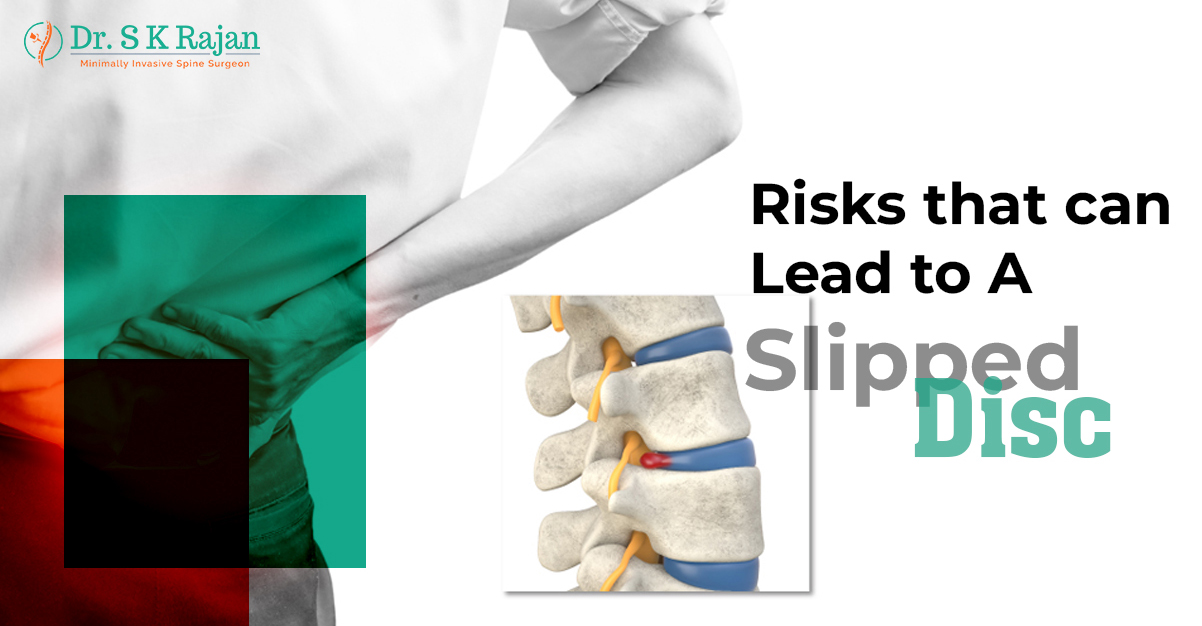
Infrequent severe back or neck discomfort is quite prevalent. Most of these aches and pains probably stem from impact injuries (contusions), pulled muscles (strains), or overstretched ligaments, all of which are quite mild (sprains). OTC pain relievers, ice packs, heat packs, and rest can help with these aches and pains. In most cases, this type of mild spinal pain can be alleviated in as little as a week or two with conservative treatment.
A herniated disc is a major cause of chronic (ongoing) discomfort for millions who complain of neck and back issues. According to some research, one-third of all Americans, or more than half of those over the age of 50, suffer from disc herniation.
Hernia is medically described as the abnormal protrusion of an internal organ or other tissue via a defect in the surrounding membrane, muscle, or bone.
In a herniated disc, the inner liquid (nucleus pulposus) leaks out of its normally contained compartment because the disc's outer covering (annulus fibrosis) has been injured or ruptured.
Axial pain can originate from within the injured disc, while radicular pain might go out from the disc or occur on its periphery. The leaking fluid may irritate the nerves within the disc due to the inflammatory proteins found in the nucleus pulposus.
If the disc's nucleus pulposus gel were to herniate completely out of it, it could put pressure on and irritate the spinal nerves that pass through the area. This issue is also known as a pinched nerve or a compressed nerve.
With an emphasis on avoidance, the following five criteria should be reviewed as potential causes of a herniated disc.
One of the most common causes of disc herniation is being overweight. Weight gain increases the strain on your musculoskeletal system, particularly your spine and other support structures. Disc bulging from too much stress on your spine can irritate the nerve roots and produce pain and numbness.
The discs in your spine and other spinal structures will thank you if you keep your weight within a healthy range.
Herniated discs are more common in people whose professions require them to stand for long periods or twist their backs repeatedly. An adjustable back brace is useful for supporting and reinforcing the spine if your occupation increases your risk of back problems.
A slipped disc can return if you've had one before. Disc herniation can be avoided with the right measures. You can reduce the likelihood of a herniated disc from occurring again by engaging in specific workouts, maintaining a healthy weight, and avoiding other risk factors.
You can't stop the clock from ticking away, but you can control how it ticks. Strengthening your musculoskeletal system as you age is facilitated by maintaining a healthy lifestyle and regular exercise routine. Your bones and other supporting structures can get the vitamins, minerals, and other nutrients they need from the food you eat regularly.
It is recommended that adults engage in at least 150 minutes of moderate to vigorous physical activity every week to help keep their muscles and bones healthy. Besides eating right and getting enough sleep, staying active and hydrated can help you age gracefully.
Herniated discs and pinched nerves are just two of the many back issues resulting from a sedentary lifestyle and all the time spent sitting it causes.
Nothing is more important when maintaining a healthy spine than engaging in frequent, moderate-intensity exercise.
You risk hurting your spine if you fall. Disc discs in your spine might be jarred loose by any action involving rapid back-and-forth motion. Accidents in the car, sports injuries, and improperly moving heavy objects are all ways in which you could inflict unnecessary stress on your spine due to their rapid, jerky nature.
Your spine, which supports your body's weight as you move about and perform daily tasks like bending and twisting, naturally experiences some wear and tear as you age. Slipped discs are more likely to occur due to all this motion and the age-related loss of fluid capacity in the discs.
If you thought smoking was terrible for your lungs, you might be startled to learn that it has other negative health effects. Cigarettes and nicotine can cause degenerative disc disease, in which the discs between the vertebrae dry out and crack. Herniated discs can be caused by misalignment of the bones and arthritic changes brought on by constant bone rubbing.
Herniated discs can occur at any age and for various causes, so it's crucial to keep this in mind. Very rarely, a disc might herniate for no apparent or recognised reason. Call your doctor if you have back discomfort and suspect a slipped disc is to blame or if you worry you may slide a disc soon.